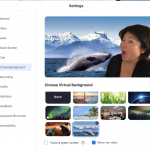The Client Interview — The Three Phases And What To Expect

It is normal to be nervous about a job interview, especially when it is for a role you really want. Knowing what to expect can help reduce interview anxiety.
Most job interviews can be broken down into three phases: Introduction, Getting to Know You, and Closing. Here’s what you can expect at each stage:
I. Introduction:
This phase is where the small talk happens and is typically when the interview provides an overview of topics to be discussed.
The Introduction phase is your opportunity to make a positive first impression: be aware of your non-verbal cues. Remember to turn off your cell phone before stepping into the interview. Do not chew gum or eat candy. Offer a firm handshake and make eye contact. Wait for the interviewer to offer you a seat. Find a comfortable, relaxed sitting position. Lean forward slightly to convey interest, and smile naturally at appropriate times. Convey confidence: keep your arms and legs uncrossed.
Show enthusiasm. Be positive and upbeat.
Appropriate questions for this phase:
- Why are you hiring for this role?
- What is expected of a person in this role?
- What does the day-to-day look like for a person in this role?
II. Getting to Know You
This is the question and answer phase of the interview. Be prepared to talk about your work experience, skills, education, activities, and interests. You will be evaluated on how well you will perform in the company’s environment.
Be prepared with specific examples of past accomplishments, and technical experience. Be sure to highlight your strengths. Convey knowledge and interest: read through the company’s website before the interview.
The interview is looking for clear and effective communication skills and ability to work effectively with other team members. Show willingness and ability to adapt. Show enthusiasm and interest. Talk about your relevant experience.
Common questions you can expect at this phase:
- “Tell me about yourself” — Briefly describe your experience and background. If you are unsure of what the interview is seeking, clarify: “are there any areas in particular you would like to know about?”
- “What is your greatest weakness?” Pick a skill you are trying to get better at and talk about what you are doing to improve.
- “What do you know about our company? Why do you want to work here?” Be sure to review the company’s website prior to the interview. Convey your interest in working for the company by showing that you took the time to learn about them. For example, “your company is an industry leader and growing…”
- Stay focused:
Avoid oversharing about your personal life. Keep all answers professional and work-related. - Avoid answering with an opinion, a theory, or a vague response.
- Avoid saying anything negative about past employers or co-workers. This will leave the interview wondering what the other side has to say about you.
- You do not have to talk continuously. The interviewer needs time to take notes and think about questions so don’t worry about periods of silence.
Questions you can ask for this phase:
- What are the company’s current challenges?What does a typical day look like for this role?How long has this position been open?
III. Closing
This phase is your opportunity to ask questions that haven’t been discussed as well as get information about the next step in the process. Take advantage of this opportunity to bring up additional benefits to hiring you. Tell them why you would make a good fit and why you are excited about the position. Ask when the decision will be made and what the next steps will be.
And most importantly, ask for the job!

